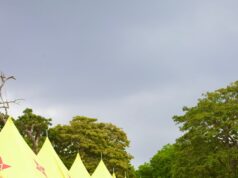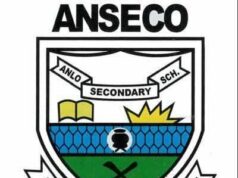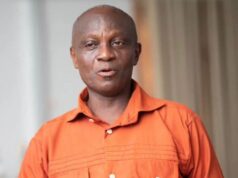IMANI Ghana, a policy think tank, has punched holes in the lecture by the New Patriotic Party presidential running mate, Dr Mahamudu Bawumia, on the state of the nation’s economy.
The policy think tank believes that while some of the points raised are legitimate, others are exaggerations and twists to achieve a political goal.
It said Dr Bawumia blended solid policy and hardcore politics “that is often difficult to untangle by objective Ghanaians seeking to rely on the technocratic experience of the former senior Bank of Ghana official to make sense of Ghana’s economic situation in an unbiased, non-partisan manner.”
Spending
While Dr Bawumia claimed that the National Democratic Congress (NDC) “has over the eight years it has ruled Ghana since 2009 amassed and spent 12 times the nominal resources that the NPP had over its eight years of rule,” Imani said, ”by using the ‘nominal’ measure of the resources, Dr Bawumia cleverly exaggerates the actual difference between the amounts obtained by the NDC compared to the NPP.”
Imani Ghana believed that “if we factor in inflation (in both dollar and cedi terms), exchange rate depreciation and other ‘time value of money considerations’ such as interest differentials, the difference between the GHS 20 billion Dr Bawumia claims the NPP secured and the GHS 248 billion he allocates to the NDC has to be adjusted.”
It said the complexity of the calculation stemmed from the fact that one had to compound the computation cumulatively from 2000 to 2016 in order to obtain the real multiple, which was about three times in 2007 historical US dollar terms., adding that it was still very significant but obviously the multiples were not exactly what Dr Bawumia insisted they were.
Minimum wage
Touching on minimum wage, while Dr Bawumia claimed that the NPP increased minimum wage by 240 per cent over its eight-year period and that conversely, income inequality worsened by five per cent under John Mahama, the policy think tank said in 2001, when the NPP took office, the minimum wage was “5500 old Ghana Cedis (dollar equivalent of $0.8)”, explaining that by the end of 2008 when the NPP’s term came to an end, the minimum wage was GHS 2.25 ($1.9).
“Using the US Feds Funds Rate and historical inflation rates to reset the value to 2001 constant rates indicate a real value of about $1.5. So Dr Bawumia is not dead-on accurate, but his general point is valid,” Imani assessed.
It said the NPP did roughly double minimum wages between 2001 and by the end of 2008 in constant US dollar terms.
“The NDC, on the other hand, started with a rate of $2.1 in 2009 and is ending its term with a minimum daily wage of $1.9 (lower dollar inflation and treasury rates account for the lower discount factor).
“In effect, wages for the lowest earners in the economy have been stagnant under the NDC. So why are we still saying that Dr Bawumia’s point is nevertheless unfair?” it queried.
Imani explained that the growth in minimum wages did not automatically remove inequality, adding, “If the wage growth among upper-tier earners increase more dramatically, which is likely to be the case given the GDP shifts witnessed over the period, then inequality could actually have increased”.
Human development terms
On claims by the NPP presidential running mate that, “Ghana made the most progress in human development terms (using the Human Development Index) between 2001 and 2010 in sub-Saharan Africa and that the growth differential has, however, declined from 1.33 per cent (2001 to 2010) to 1.13 per cent (2010 to 2014) under the NDC,” Imani Ghana observed that, “This is one of the claims we really struggled with. Ghana experienced a shift in our Human Development Index score from 0.485 in 2000 to 0.554 in 2010 and is currently scoring around 0.581.
“Zambia, for instance, experienced a shift from 0.433 to 0.555 over the same period,” it said, adding that Botswana experienced a whopping shift from 0.561 to 0.681.
“It is clearly inaccurate to argue that under the NPP Ghana experienced the highest improvement in sub-Saharan Africa on this measure, nor is it entirely clear that the figures show a dramatic decline since 2010,” the organisation explained.
Revenue shortfall
On revenue shortfall, while Dr Bawumia claimed that there had been a revenue shortfall of about GHS 700 million for the first half of the year, Imani Ghana noted that Dr Bawumia appeared to be using the budget estimate of GHc11 billion as the benchmark. It observed that by that yardstick, he was completely accurate.
The organisation proposed that Dr Bawumia could also have done a cross-year comparison against the 2015 figures and to come up with an even higher shortfall of more than GHc 2 billion.
‘Fiscal council’
Touching on the Dr Bawumia pledge to set up a ‘fiscal council’ to be anchored in law to oversee medium-term fiscal accountability, Imani Ghana reminded him that the fiscal authorities in Ghana were nominally regulated by Act 335 and Act 654 and their work was impacted by parliamentary oversight and various legal audit frameworks.
“Is the NPP promising to revive the fiscal responsibility law promised but not delivered in 2007? How will this assembly of experts outperform the old regimes of presidential advisory councils and economic management teams?
“We hope that the NPP, and indeed all political parties, also realise that for a free and fair elections the electorate deserves to be fully informed and assisted to discern fair and unfair exploitation of data so that they can apportion the right amount of credibility to the competing candidates,” Imani Ghana concluded.
Quick Read
While commending the NPP presidential running mate, Dr Mahmudu Bawumia, for his masterful blend of solid policy and hardcore politics, Imani Ghana said he made it difficult to untangle by objective Ghanaians seeking to rely on him to make sense of the country’s economic situation in an unbiased, non-partisan manner.
By: DAILY GRAPHIC























